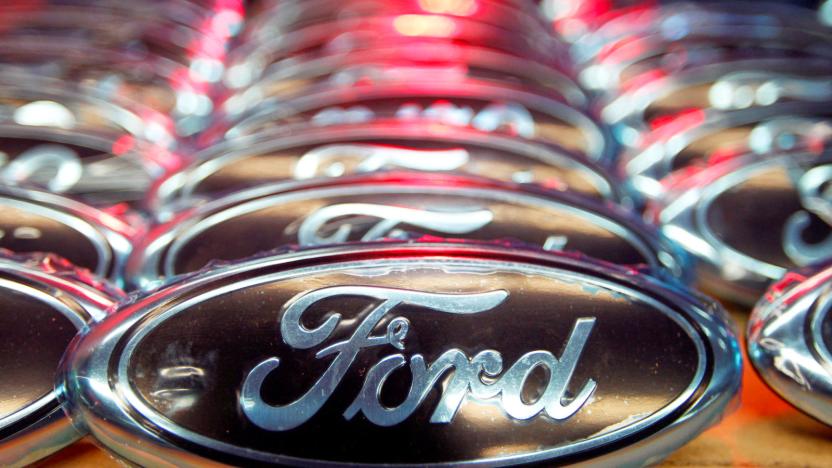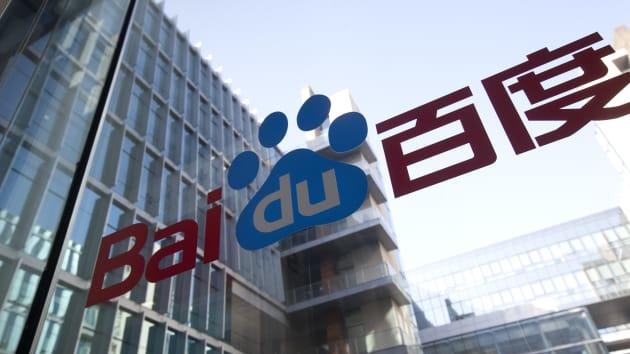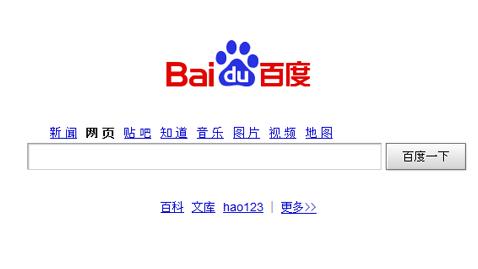baidu
Latest

NVIDIA and Baidu are building an AI platform for autonomous cars
Chinese search engine giant Baidu and NVIDIA have announced a partnership to develop an artificial intelligence platform for self-driving cars.

Baidu's all-electric self-driving car is a modified Chery EQ
Baidu's plan to make self-driving cars a consumer reality by 2018 just changed gears, so to speak. According to Business Insider, the company has swapped out its modified BMW 3-series test vehicles for an all-electric car designed for the Chinese market: the Chery EQ. Unmodified, the diminutive EV can drive about 120 miles on a full charge. Baidu intends to use it to further test its driverless tech in China.

Ford and Baidu both keen on investing in self-driving tech
Auto manufacturer Ford and Chinese search company Baidu are hard at work resarching self-driving technology, but are obviously looking for ways to make it simpler to get things done. The two companies have just announced a joint investment of $150 million in Velodyne, a firm that creates LIDAR sensors.

Ride-hailing apps like Uber will be legal in China soon
Considering how much business Uber does in China, it's kind of hard to imagine that ride-hailing apps aren't exactly legal in the country. Well, they weren't, but they're about to be. Chinese regulators have passed a new law that clears up the legal grey area companies like Uber and Didi Chuxing operate in. Starting on November 1st, ride-hailing apps will be legal, so long as they follow a few rules.

Baidu will soon test its self-driving cars in the US
Chinese tech giant Baidu is planning to make self-driving cars a commercially viable option by 2018. To take another step in that direction, the company will test its autonomous vehicles on roads in the US. The plan to bring those cars stateside was announced by Baidu's chief scientist Andrew Ng this week, inviting better cooperation with the United States government and the ability leverage resources from its Silicon Valley tech center. That office, which is lead by Ng, is staffed with a number of employees tasked with the development of self-driving tech.

Baidu's autonomous car completes full driverless testing
Baidu's working hard to catch up to Google's autonomous car tech, and just recently, its modified BMW 3 series has completed a rigorous, fully autonomous testing on mixed roads. The Chinese Google's autonomous car traveled an almost 19-mile route that began at its headquarters in Beijing without the intervention of a human driver. Wang Jing, its Autonomous Driving Unit's SVP, boasted: "Fully autonomous driving under mixed road conditions is universally challenging, with complexity further heightened by Beijing's road conditions and unpredictable driver behavior." The vehicle made right/left/U-turns, passed other cars and merged into traffic on its own while going at a top speed of 62 mph.

Bunk Baidu SDK puts backdoor on millions of Android devices
A software development kit created by Baidu, China's Google, has reportedly opened more than 100 million Android devices to malicious hackers. Baidu's Moplus SDK may not be available to the public but it's already made its way into more than 14,000 Android apps -- only 4,000 of which Baidu actually created. The SDK allows its apps to open an unsecured and unauthenticated HTTP server connection.

Microsoft teams up with Baidu to push Windows 10 in China
Microsoft has struck a partnership with Chinese internet giant Baidu, as it continues to focus on getting people on Windows 10. Via blog post, the Redmond-based firm said the idea behind this business alliance is to make it easy for Baidu customers to upgrade to its new OS, as well as offer personalized browsing and searching experiences for users in China. For example, Baidu.com -- which has more than 600 million active users -- will become the default homepage and search engine for Microsoft's Edge browser. In return, Baidu is expected to bring standalone, universal apps for cloud, search, maps and video over to Windows 10. Microsoft adds there are currently 10 million devices running the fresh operating system in that country, a huge chunk of the reported 45 million-plus total number.

Baidu unveils a voice-activated, AI-based smartphone assistant
Chinese tech company Baidu announced at its Baidu World conference on Tuesday that it is launching a voice-activated assistant for its Android-based smartphones. The program is called "Duer", which roughly translates into "Du Secretary", is expected to directly compete with Siri, Cortana and Google Now. Initially, the app will allow users to perform tasks like ordering food as well as controlling smart devices around the home and accessing other on-demand services (ride hailing, designated driver services, or housekeeping) via voice command. Eventually, the company plans to integrate Duer into its other apps, like Maps, and potentially even into the self-driving BMW that the company is rumored to be working on. [Image Credit: ChinaFotoPress via Getty Images]

Baidu will test a self-driving BMW later this year
We've known for a while that Baidu wants its first self-driving car on the road by the end of this year, and now we know who's making that happen. The Guardian reports that the Chinese company is partnering up with BMW, which will provide the testbed for the duo's autonomous car project. The prototype will be used to ensure that the search engine's automotive know-how is safe enough for the public although, like Google's tests, a human will also be along for the ride.

China's tech giants are getting into the autonomous car business
Google and Tesla are squaring off against each other for the future of self-driving cars, so it's no surprise to see China's tech giants follow suit. Both Tencent and Baidu have announced that they'll be getting into the autonomous vehicle game in the last 24 hours. Tencent is teaming up with iPhone assembler Foxconn, as well as a local luxury car outfit, to create "smart vehicles."

Chinese internet giant Baidu is reportedly buying a stake in Uber (update: official)
For all of the horrifying incidents, shut-downs and PR disasters, Uber's clearly got enough potential to excite the folks over at Baidu, which is often referred to as "the Google of China." According to Bloomberg, Baidu is ready to throw anything up to $600 million at the ride sharing firm in exchange for a small stake in the company. It's a win-win for Uber, since it'll gain the sort of local knowledge that US businesses need in order to make it in China, as well as a big stack of cash. In addition, Baidu will share online resources with the startup, although it's not yet clear what that actually means. The search giant is sending out invites to an announcement on December 17th, where it'll reveal which "US startup that is now a household name" it's teaming up with. Which, you know, is probably Uber. Update 12/17: And it's official. They're not talking about the money involved, but the new collaboration (Baiduber?) will let Baidu's users find rides through mobile and search apps. Uber, meanwhile, gets Baidu's app distribution -- important, since the Google Play Store doesn't operate in China.

China's Google will launch a smart bike later this year
What's the next hot connected gadget category? Forget watches, we're thinking bikes, judging by the overwhelming interest in crazy, innovative new models like Teague's 'Denny' e-bike. Chinese search giant Baidu is all over that with the Dubike, a non-motorized bicycle equipped with regenerative electric tech and laden with smart fitness technology. It sports heart rate, pedal rate, peddle pressure and other sensors which which connect via Bluetooth to a smartphone app. With that info, it'll monitor your health stats, provide mapping directions, track your bike's position and recommend cycling routes or fitness programs via social networks -- to name just a few possible functions.

Baidu's new headset and chopsticks record, ID and judge the food you eat
Chinese search giant Baidu has formally launched its answer to Google Glass, but unlike Mountain View's creation, it doesn't actually come with a display. The headset, called Baidu Eye, wraps behind your head instead. It recognizes voice and gesture commands, including being able to look up anything you want like plants, bags or clothes just by encircling any object in the Eye's line of sight with your finger. The system then sends the results to your smartphone in the absence of a display. That's not the only thing the company showcased at its recent annual developers' conference in Beijing, though: it has also debuted its new smart chopsticks, which originally began as an April Fools' joke.

China's Baidu to challenge Google with its own self-driving car
Baidu is often referred to as "China's Google," but it's not quite the same. It's true, the company is working on it's own self-driving car, but it thinks Google's no-wheel design is all wrong. According to Kai Yu, Baidu's Institute of Deep Learning's deputy director, autonomous vehicles need to be more like horses than robots. "A car should not totally replace the driver but should really give the driver freedom," Yu told TheNextWeb. "Freedom means the car is intelligent enough to operate by itself, like horse, and make decisions under different road situations."

Search engines allowed to block political websites in the name of 'freedom of speech'
When a search engine is hauled before a judge, it's often because somebody, somewhere, objects to a particular search result. However, in the case of eight New Yorkers who tried (and failed) to sue China's biggest search engine, Baidu, it was the exact opposite: The plaintiffs were pro-democracy activists who accused Baidu of de-listing their articles and videos for political reasons. They argued that this censorship breached their civil and equal protection rights, because American users of Baidu were unfairly blocked from accessing their work. After three years of wrangling, a US District Court judge has now dismissed the case on the basis that no owner of a search engine should be forced to list specific websites, because this would breach the owner's right to freedom of speech.

China's Baidu teams up with TCL to launch their own Smart TV
Imagine a world where Twitter and Westinghouse hooked up to make Smart TVs powered by Netflix, and that's kinda what's happening in China right now. Baidu has hooked up with TCL to let the former's iQIYI video platform drive the latter's newest TV. The TCL-iQIYI TV+ (as it'll be known) is 29mm thick with a "top end" dual-core CPU running Android 4.2.2, and users will have free and permanent access to a library of around 200,000 high-definition video titles. Locals looking to snag the gear will have to save up RMB 4,567 ($746) when it launches at the end of today.

Tencent ups the ante, offers users 10TB of free cloud storage in promotion
If you thought that the free storage that's offered by Microsoft, Google and others were generous, then you've never been to China. Tencent, in an attempt to crawl past local rivals Baidu and Weibo, is offering customers a whopping 10 Terabytes of space on its Weiyun cloud storage service. All users need to do is sign up with the company, offer up their QQ account number, and download the Weiyun mobile app -- which bags 'em an instant 1TB, with the allowance gradually increasing to 10TB the more files they upload. The only downside for us, naturally, is that the promotion does make SkyDrive's 25GB seem a bit stingy by comparison.

Keepin' it real fake: China's Codoon SmartBand pays homage to Jawbone Up
Viewing it from afar, you could easily mistake this gadget for Jawbone's Up fitness band. What we have here is actually the SmartBand from Chinese fitness accessories maker Codoon, and it's almost a carbon copy of the Up in terms appearance and functionality. Bend this strip around your wrist to track your movement and sleeping patterns (with the ability to wake you up with vibration at the optimal sleeping cycle; just like the Up), and afterwards, plug the hidden 3.5mm headphone jack into either an iPhone or an Android device for analysis and sharing through Codoon's website. After we reached out to Baidu regarding the Baidu Cloud logo on the SmartBand, a spokesperson told us that it's the first wearable developed on top of Baidu's PCS (Personal Cloud Service) to sync and share data, and Codoon's upcoming Bluetooth fitness products will work on the same platform (likewise for the Baidu Eye project). Still, it's a real shame that the startup couldn't come up with its very own design for its first hero product. Expect this rip-off to hit the market in early June for an unknown price -- but you can already get an Up in China, anyway.

Baidu Eye is no joke, aims to be a Google Glass competitor
We all know that Chinese search giant Baidu is notorious for receiving much inspiration from its US counterpart, Google, and according to the above IM screenshot published on April Fools' Day (now bear with us here), the former is apparently already working on its own version of Glass. This claim is seemingly supported by a couple of articles from Tencent Tech and Sina Tech, who said that the spectacles feature a tiny LCD, image recognition technology, voice control technology and bone conduction audio. These all sound familiar, no? The articles also mentioned Qualcomm's "latest power management chip," which would allegedly push the device's battery life up to 12 hours. That said, Baidu's real goal is apparently to offer an open platform for wearable devices in all shapes and forms: watches, necklaces, headphones and more.









